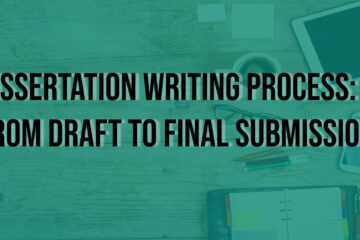Embarking on the journey of writing a dissertation can be both exciting and challenging. As a crucial milestone in academic life, a well-crafted dissertation can open doors to new opportunities and contribute significantly to your field of study. However, the path to dissertation success is often paved with obstacles that require careful navigation. In this comprehensive guide, we will explore essential tips and tricks to help you navigate the dissertation writing process successfully, ensuring a smoother and more rewarding experience.
Choosing a Relevant and Manageable Top
The foundation of a successful dissertation lies in selecting a relevant and manageable topic. Consider your interests, expertise, and the current trends in your field. Utilize online resources and academic databases to explore potential research gaps and areas that need further exploration.
Crafting a Solid Research Proposal
Once you have identified your research topic, the next step is to create a compelling research proposal. Clearly articulate the problem statement, objectives, research questions, and the significance of your study. Seek feedback from your mentors and peers to refine your proposal. Remember, a well-structured research proposal serves as a roadmap for your dissertation journey.
Developing a Realistic Timeline
Time management is critical in the dissertation writing process. Create a realistic timeline that includes milestones for literature review, data collection, analysis, and writing. Use tools and techniques such as Gantt charts to visualize your schedule and ensure that you allocate sufficient time for each stage.
Conducting a Thorough Literature Review
A comprehensive literature review is the backbone of your dissertation help. Dive deep into existing research to identify gaps, controversies, and key theories related to your topic. Use academic databases and libraries to access relevant scholarly articles.
Collecting and Analyzing Data
Whether your dissertation involves qualitative or quantitative research, meticulous data collection and analysis are crucial. Ensure that your research methods align with your research questions. Utilize tools and software relevant to your data analysis needs.
Writing a Coherent and Well-Structured Dissertation
The writing phase is where your research comes to life. Start with a clear introduction that sets the stage for your study. Develop each chapter systematically, providing a logical flow of information. Use clear and concise language, and pay attention to formatting guidelines.
Seeking Feedback and Revisions
Regular feedback is essential throughout the dissertation writing process. Share your drafts with your advisors, peers, or writing groups to gain different perspectives. Be open to constructive criticism and be prepared to make revisions.
Addressing Challenges and Overcoming Obstacles
It’s normal to face challenges during the dissertation journey. Common obstacles include writer’s block, data analysis complexities, and time constraints.
Conclusion
Successfully completing a dissertation requires a combination of strategic planning, dedicated effort, and effective writing skills. By following the tips and tricks outlined in this guide, you can navigate the dissertation writing process with confidence. Remember, seeking help when needed, staying organized, and maintaining a positive mindset are key elements of dissertation success. Best of luck on your academic journey!



